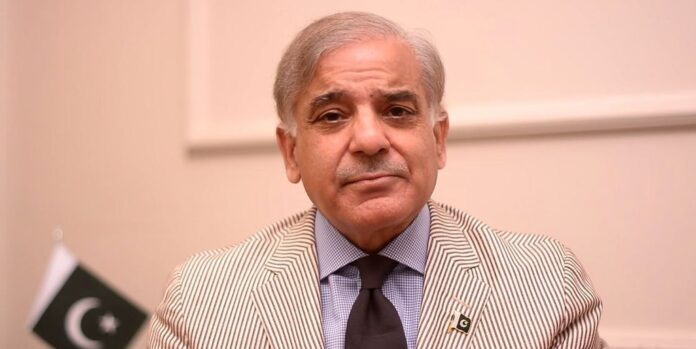Prime Minister Shehbaz Sharif leads a comprehensive counterterrorism drive to stabilize the nation and restore investor confidence
In response to escalating militant violence, Pakistan has initiated a comprehensive counterterrorism campaign, Operation Azm-e-Istehkam (Resolve for Stability). Prime Minister Shehbaz Sharif led a meeting of the Central Apex Committee of the National Action Plan, which includes top civilian and military leaders, to review the country’s security situation and devise a robust strategy to combat terrorism.
Since November 2022, Pakistan has seen a surge in militant attacks after the Tehreek-e-Taliban Pakistan (TTP) ended a fragile ceasefire with the government. The violence, predominantly in the western provinces of Khyber Pakhtunkhwa and Balochistan, has not only targeted civilians and security forces but also jeopardized national economic interests. Chinese nationals working on crucial infrastructure projects under the China-Pakistan Economic Corridor (CPEC) have been particularly vulnerable, prompting concerns from both Beijing and Islamabad.
Embed from Getty ImagesDuring the high-level meeting, the government and military leadership agreed on a multi-faceted approach to counterterrorism. This includes renewed kinetic efforts by the armed forces, legislative support to address legal gaps hindering the effective prosecution of terrorists, and socio-economic measures to address the root causes of extremism.
“The Prime Minister approved a reinvigorated and re-energized national counter-terrorism campaign through the launch of Operation Azm-e-Istehkam, with consensus from all stakeholders including the provinces, Gilgit Baltistan, and Azad Jammu and Kashmir,” stated an official release. The campaign aims to eradicate extremism and terrorism from Pakistan, symbolizing the nation’s collective resolve.
Efforts will also intensify in the politico-diplomatic domain to limit operational space for terrorists through regional cooperation. Additionally, the operation will leverage the information space to promote a unified national narrative against militancy.
The Central Apex Committee reiterated that combating extremism and terrorism is crucial for Pakistan’s survival and well-being, and resolved that no one will be allowed to challenge the state’s authority. The committee also reviewed measures to ensure the security of Chinese nationals working in Pakistan.
Prime Minister Sharif emphasized that Pakistan must develop a strong, comprehensive response to militant violence to strengthen its economy and restore investor confidence. “A soft state can never earn the confidence of investors, whether domestic or foreign,” he stated, highlighting the importance of stability and rule of law for sustainable development.
Sharif criticized the tendency to leave counterterrorism efforts solely to the armed forces, stressing that provincial governments also have a significant role post-18th amendment. He urged all state institutions to take joint ownership of the war against militancy to effectively eradicate terrorism.
Earlier, Interior Minister Mohsin Naqvi held a separate meeting to review security measures for foreign nationals, particularly Chinese workers, underscoring the government’s commitment to protecting foreign investment and ensuring the safety of all residents.
Analysis:
Political:
Operation Azm-e-Istehkam represents a crucial political move by the Shehbaz Sharif government to consolidate state power and counter the rising threat of militancy. By involving both civilian and military leadership in the decision-making process, the operation aims to present a unified front against terrorism. The emphasis on regional cooperation highlights Pakistan’s intention to work with neighbouring countries to mitigate cross-border terrorist activities, which is crucial given the TTP’s reported sanctuaries in Afghanistan. This comprehensive approach is expected to enhance political stability and reinforce the government’s commitment to maintaining law and order.
Social:
The campaign has significant social implications, particularly in addressing the root causes of extremism. By implementing socio-economic measures alongside military action, the government aims to alleviate the grievances that often lead to radicalization. This dual approach can foster social cohesion and reduce the appeal of militant ideologies. The focus on a unified national narrative against extremism is also essential in countering the propaganda spread by terrorist groups and promoting a sense of national unity and resilience.
Racial:
While the operation does not directly address racial issues, its focus on equitable socio-economic development can indirectly impact racial dynamics. By ensuring that development initiatives reach marginalized communities, the government can address underlying inequalities that may contribute to social unrest and radicalization. Promoting inclusivity and equal opportunities can help bridge racial divides and foster a more harmonious society.
Gender:
The operation’s emphasis on socio-economic measures provides an opportunity to address gender disparities. By promoting development projects that benefit women and ensuring their participation in the economic and social spheres, the campaign can enhance gender equality. Additionally, by protecting communities from militant violence, the government can create a safer environment for women, allowing them to participate more fully in public life and contribute to national development.
Economical:
Economically, Operation Azm-e-Istehkam is crucial for restoring investor confidence and ensuring the smooth implementation of major infrastructure projects like CPEC. The government’s commitment to ensuring the security of Chinese nationals and other foreign investors underscores the importance of stability for economic growth. By addressing the root causes of extremism and promoting a secure environment, the operation aims to create favourable conditions for investment, boost economic activities, and generate employment opportunities, thereby fostering overall economic development.
